EU compound in Afghan capital under probe for alcohol smuggling
A report reveals that the European Union compound in the Afghan capital of Kabul is under investigation for having a role in an alcohol-smuggling ring in the Muslim country, where possession and consumption of alcohol is illegal.
Leaked Facebook and WhatsApp messages forwarded to EU investigators appear to show that beer, wine and spirits purchased for the exclusive consumption of European officials in Afghanistan were instead sold on to local businessmen in the Asian country, The Guardian wrote on Friday.
According to the daily, EU investigators are probing reports that the bloc’s headquarters in Kabul is at the center of the illicit alcohol-smuggling ring across Afghanistan, using unused fridges and adapted gas canisters “to sneak bottles of alcohol brands” out of the official EU-designated area.
The report further notes that despite illegality of alcohol in the predominantly Muslim nation, “a thriving black market exists” in the Afghan capital, where “special dispensation to import alcohol has been given to foreign powers, including the EU.”
This is while an internal investigating unit of the EU is examining the claims, said a spokesman as cited in the report. The allegations, it adds, “could cause major embarrassment for the European External Action Service [EEAS], which acts as the EU diplomatic corps and oversees the mission in the Afghan capital.”
The focus of the allegations is on the EU’s compound located in the Shahr-e-Naw neighborhood of north-west Kabul where, according to a former staff member, “up to 40 European expats and 70 locals have worked in the three-story office building and adjoining restaurant, Tawoos.”
The daily says suspicions about the alcohol-smuggling operation first emerged in August “when restaurant workers transporting a supposedly disused fridge from the compound were forced to show its contents to a senior manager.”
She then described events to the then EU special representative for Afghanistan Franz-Michael Mellbin, writing, “I was having dinner with [a colleague] when I saw that Tawoos employees were trying to move out of the compound a big fridge.”
“I asked them why and they said the fridge was broken. A few minutes after, I went to the car and instructed them to open the fridge. I insisted, but they didn’t want to open it,” added the senior manager, noting: “But after having called additional security…they opened the fridge, which was full of alcohol. I took pictures. Please advise.”
However, the report added, this was not the only ingenious method of transporting alcohol to “customers” in Kabul. It further cited a source as saying that “bottles were also allegedly placed in adapted 1.5-metre (5ft) gas canisters; sometimes they were hidden in wheelbarrows used to take rubbish from the compound at night.”
According to the daily, which states that it has seen documents showing that the EU delegation in Kabul purchased nearly $510,000 of alcohol over 20 months to December 2016, complainants have called on the EU to investigate whether the compound has been importing additional alcohol to meet the demands of the alleged illicit smuggling ring.
A bill from January, marked with the words ‘European Union delegation Afghanistan’ shows that in a single order $21,035 was spent on major brand alcoholic beverages.
Investigators in Brussels have received copies of Facebook and WhatsApp messages sent by one of the alleged bootleggers that appear to show the size of orders the EU compound has taken from local businessmen in Kabul.
In one exchange, the report said, a staff member of the EU building wrote: “Send me please want [sic] you need.” The reply from a local businessman, written on 25 April 2016, ordered 12 items of various quantities of liquor for delivery.
The daily further pointed out that another leaked message seems to show the large markup on each bottle of alcohol, adding that bottles that cost the EU $24.40 and $9.65 were then sold to local customers for $50 and $60, respectively.
Meanwhile, an EU spokeswoman cited in the report said the EEAS, the European commission and the EU delegation in Kabul became aware of the allegations at the end of August and immediately informed the European anti-fraud office (Olaf), “which is deciding whether to launch a formal investigation.”
The official government in Kabul, however, has not responded to inquiries for comment on the report, the daily added.
Iran’s security chief in Russia to underline Israel’s aggression
VIDEO | Smoke rises from Gaza as fighting continues
ICRC decries escalating Israeli raids across occupied West Bank
Israel still prevents food convoys from reaching north of Gaza: UNRWA
NYPD arrests multitude of pro-Palestine students at NYU campus
Iran’s decisive response to Israel disrupted enemy’s equations: Hamas
Iran releases details of confiscated Israeli transit cargo
VIDEO | Press TV's news headlines


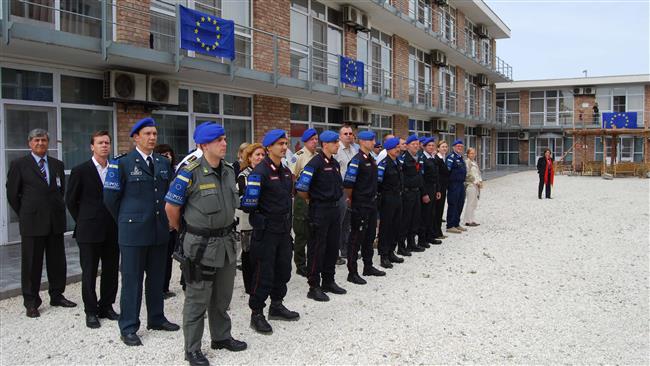
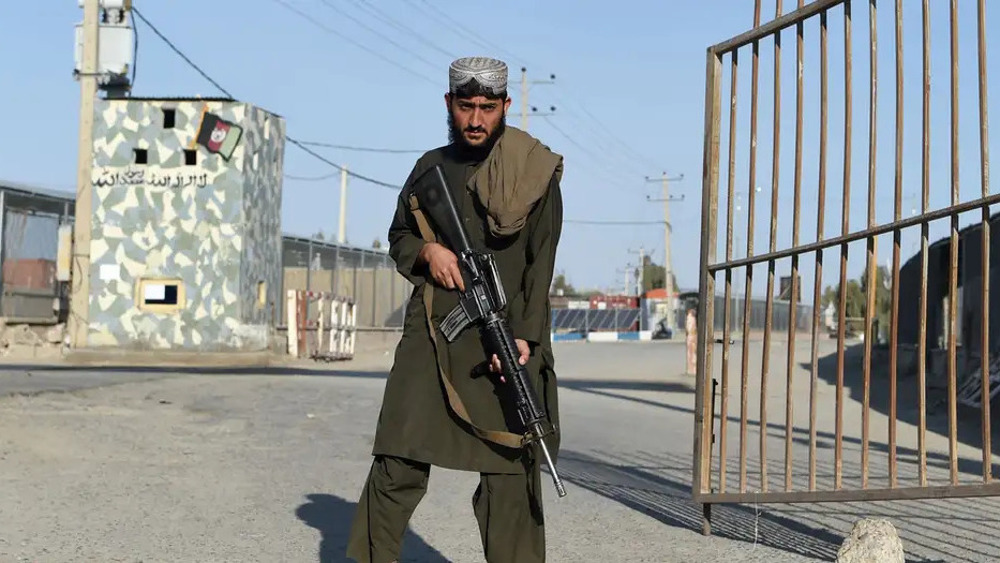
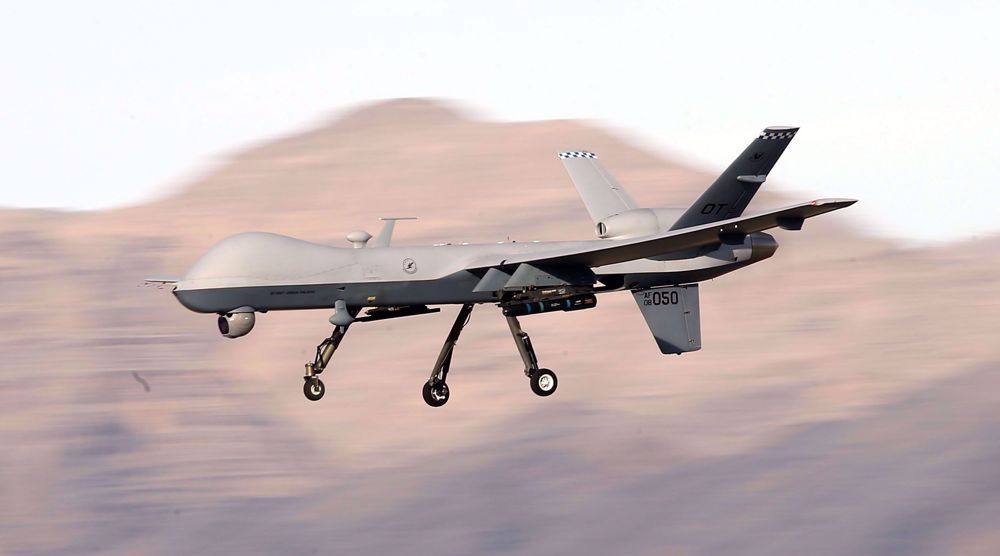
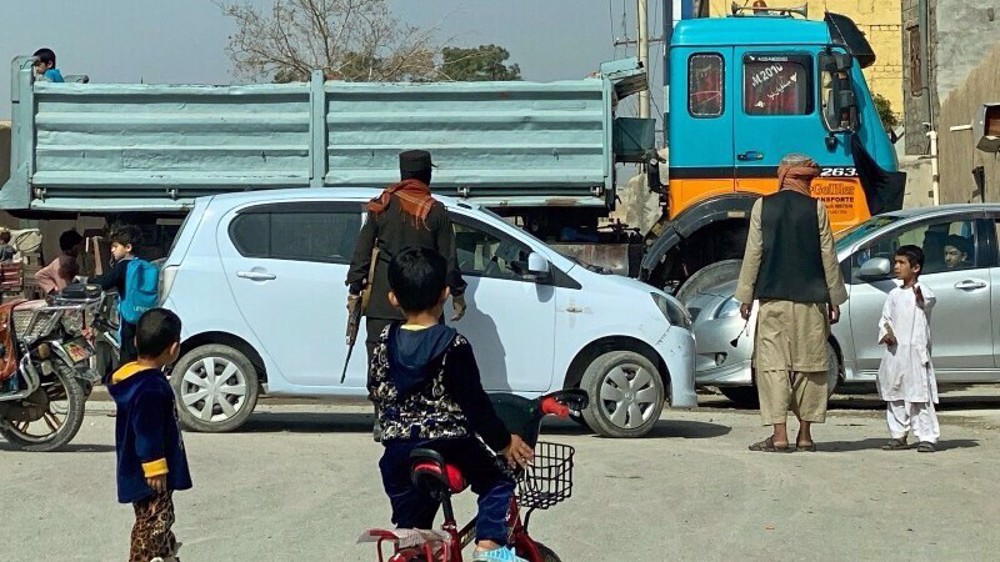



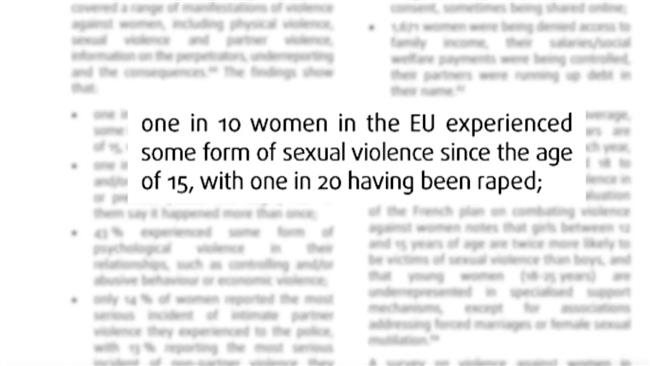
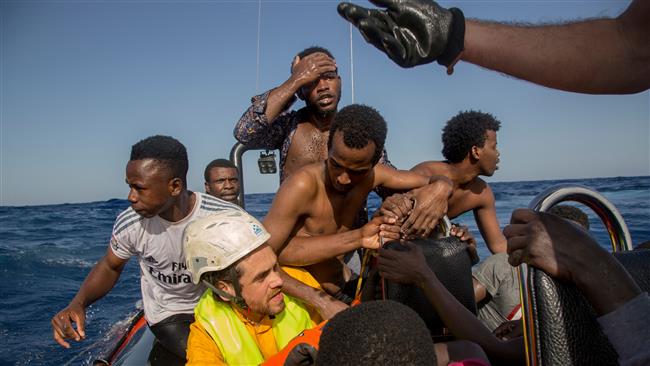
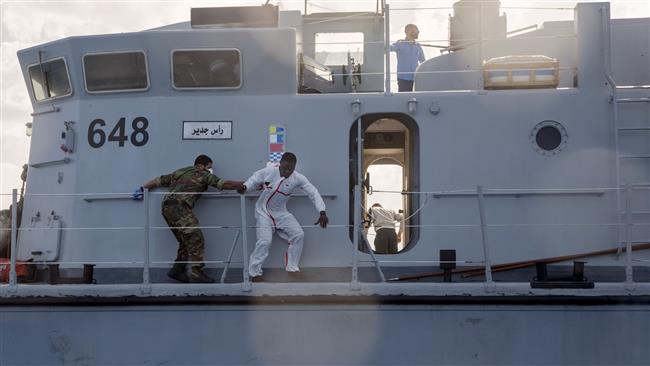

 This makes it easy to access the Press TV website
This makes it easy to access the Press TV website